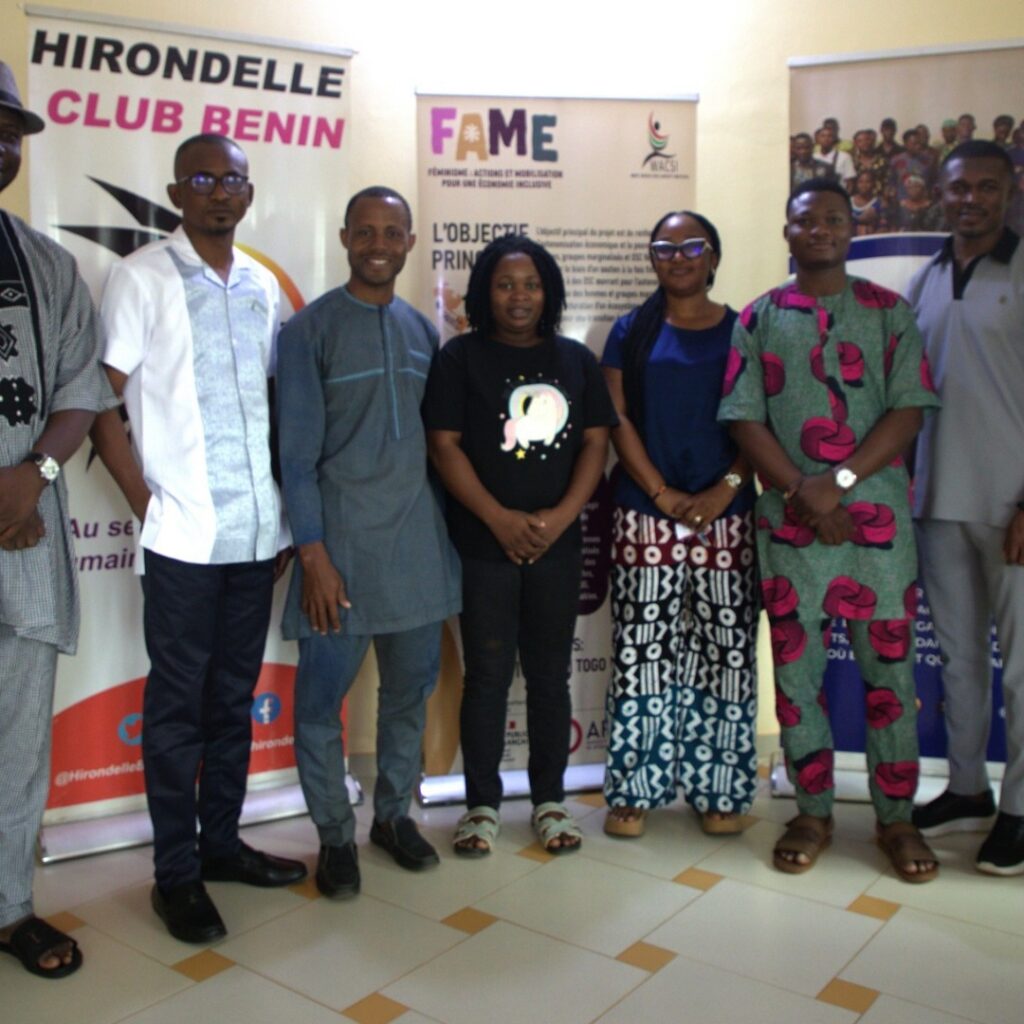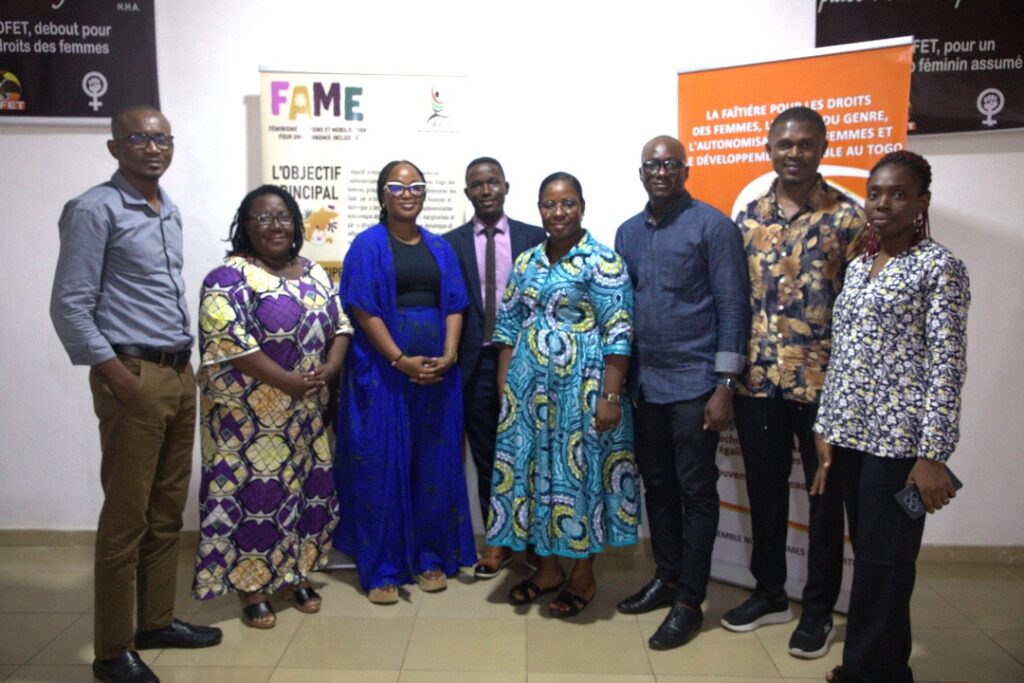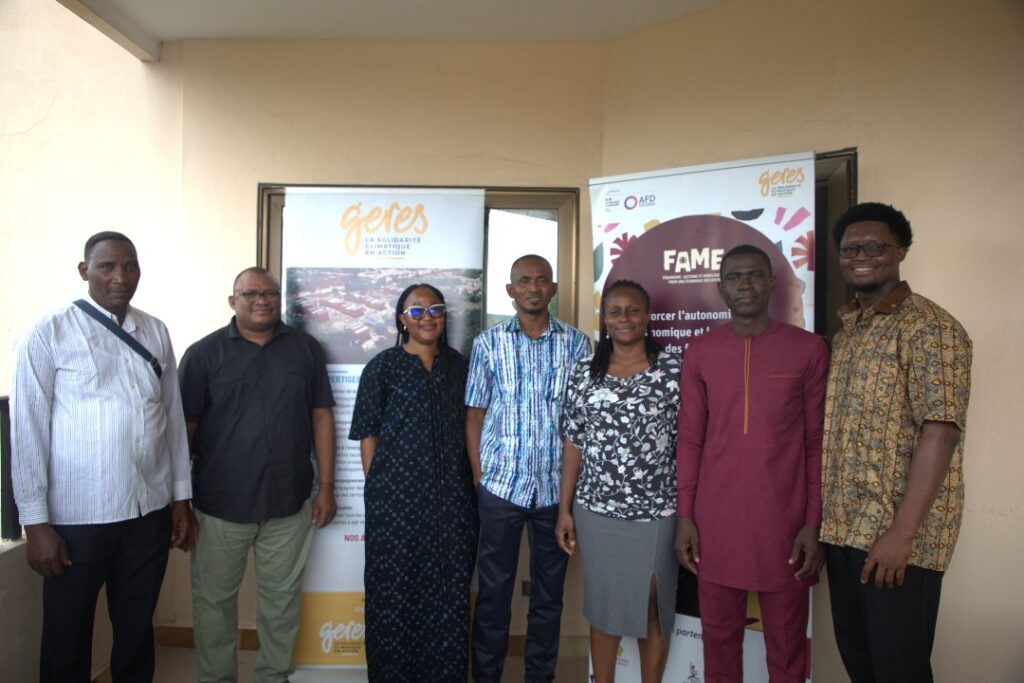A recent field mission by the West Africa Civil Society Institute (WACSI) has spotlighted both the promise and the pressing needs of feminist movements in Benin and Togo, as the region takes bold steps toward inclusive and ecological economic transitions.

Between July 20 and 25, WACSI teams met with the preselected network organization under Window 3 (Collective Actions for an Ecological and Inclusive Economic Transition) in both countries to assess their strengths, identify gaps, and chart pathways for deeper institutional support. The exercise forms part of the Feminist Action for Mobilising Economic Power (FAME) project, a four-year initiative funded by the Agence Française de Développement (AFD) to elevate feminist leadership in reshaping an inclusive economies in West Africa’s.
In Togo, feminist organisers showcased how local advocacy has already transformed everyday life. “In the area of sanitation, we carried out advocacy to ensure that some of these municipalities have waste disposal sites,” explained Blandine Sintondji Yaya, a national coordinator. Such efforts, though local, illustrate how feminist groups are addressing urgent needs while advancing systemic change.
In Benin, women-led organisations highlighted their work in peace, security, and community accountability, demonstrating how feminist leadership can cut across sectors traditionally viewed as male-dominated.

While the grassroots achievements are striking, WACSI’s assessment also revealed systemic weaknesses that could hold back long-term impact. Across both countries, organisations were urged to strengthen their strategic planning, improve monitoring and evaluation systems, and ensure more inclusive participation frameworks within their networks.
Environmental sustainability was identified as a critical missing piece. “We have observed that the environmental aspect is being overlooked, even though we are all experiencing the effects of climate change,” noted Ulrich Sourou, a feminist leader in Benin. Integrating ecological priorities into feminist economic advocacy was flagged as vital for durable change.
WACSI’s mission emphasised that strengthening governance, accountability structures, and financial management will be central to ensuring these groups are not only visible in advocacy but also resilient in practice. Recommendations included refining proposals and budgets for greater strategic clarity, investing in safeguarding and compliance mechanisms, and creating joint implementation plans that reflect the diversity of voices within feminist networks.

From the missions to Benin and Togo will feed into the next phase of the project, helping to guide both future funding and capacity-building actions in support of feminist movements engaged in inclusive economic reform.
The field visits provided strategic insights that will shape the next phase of the FAME project across its areas of intervention. This phase will focus on channeling funding and capacity-strengthening support toward feminist movements leading the charge for inclusive economic reform.
As the project advances, emphasis remains on the ability of partner organisations to combine their deep-rooted community legitimacy with the institutional strength required to influence the future of inclusive economies at both national and international levels.”




